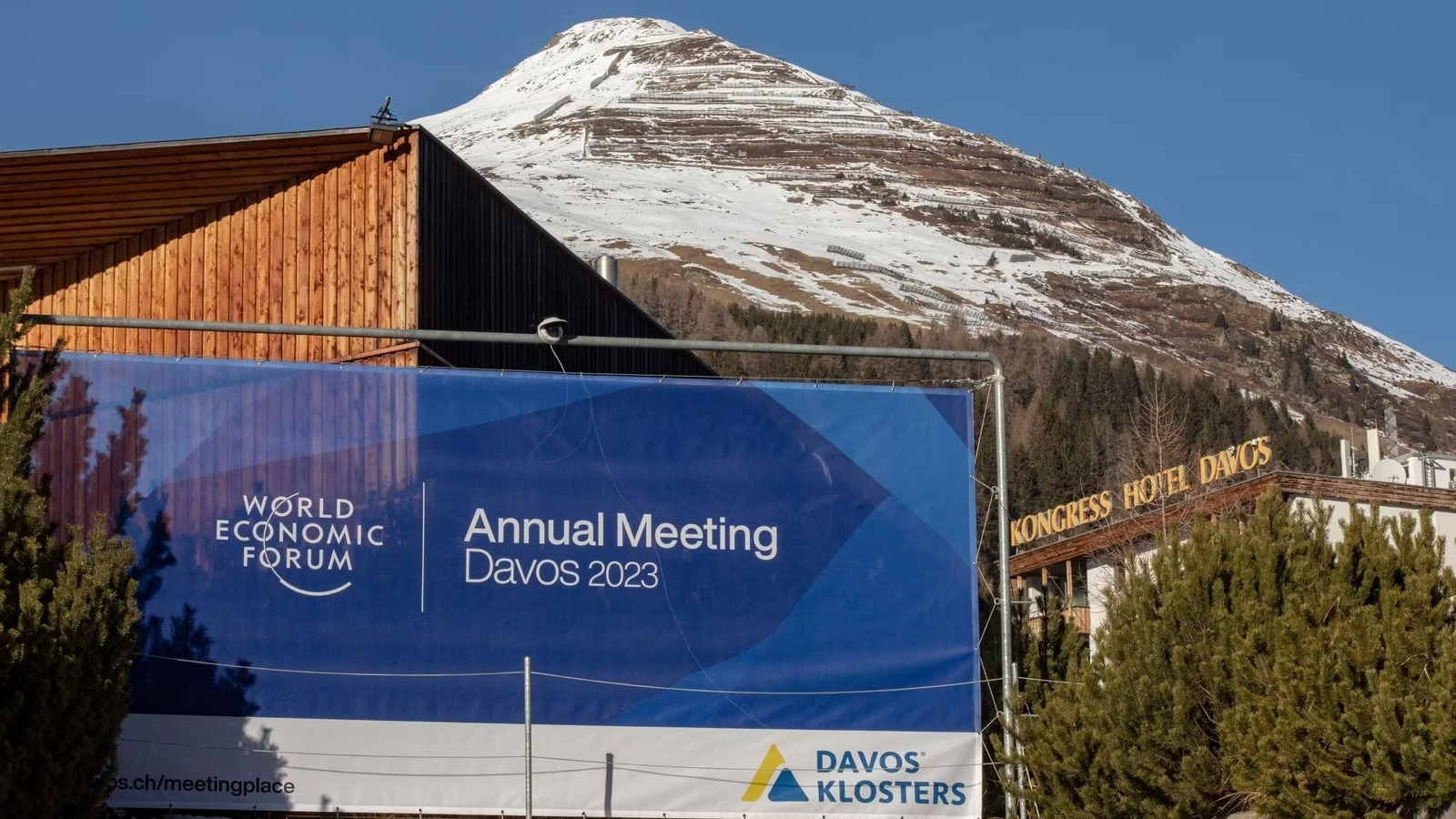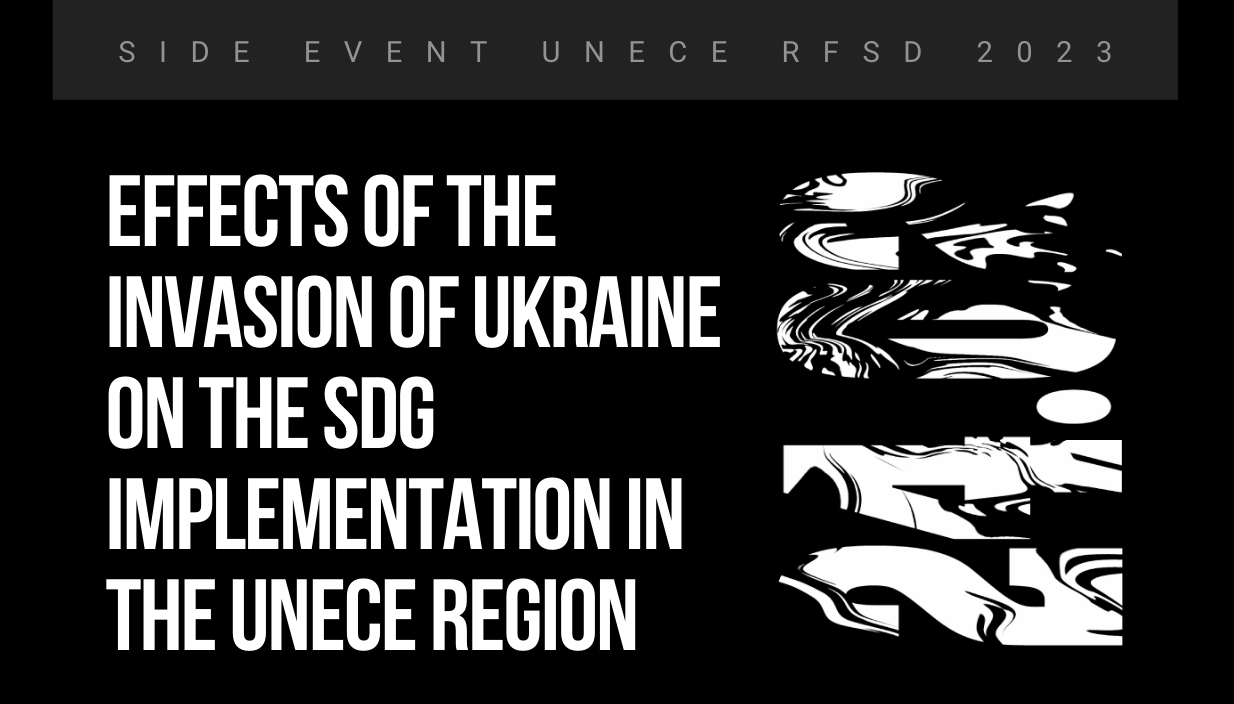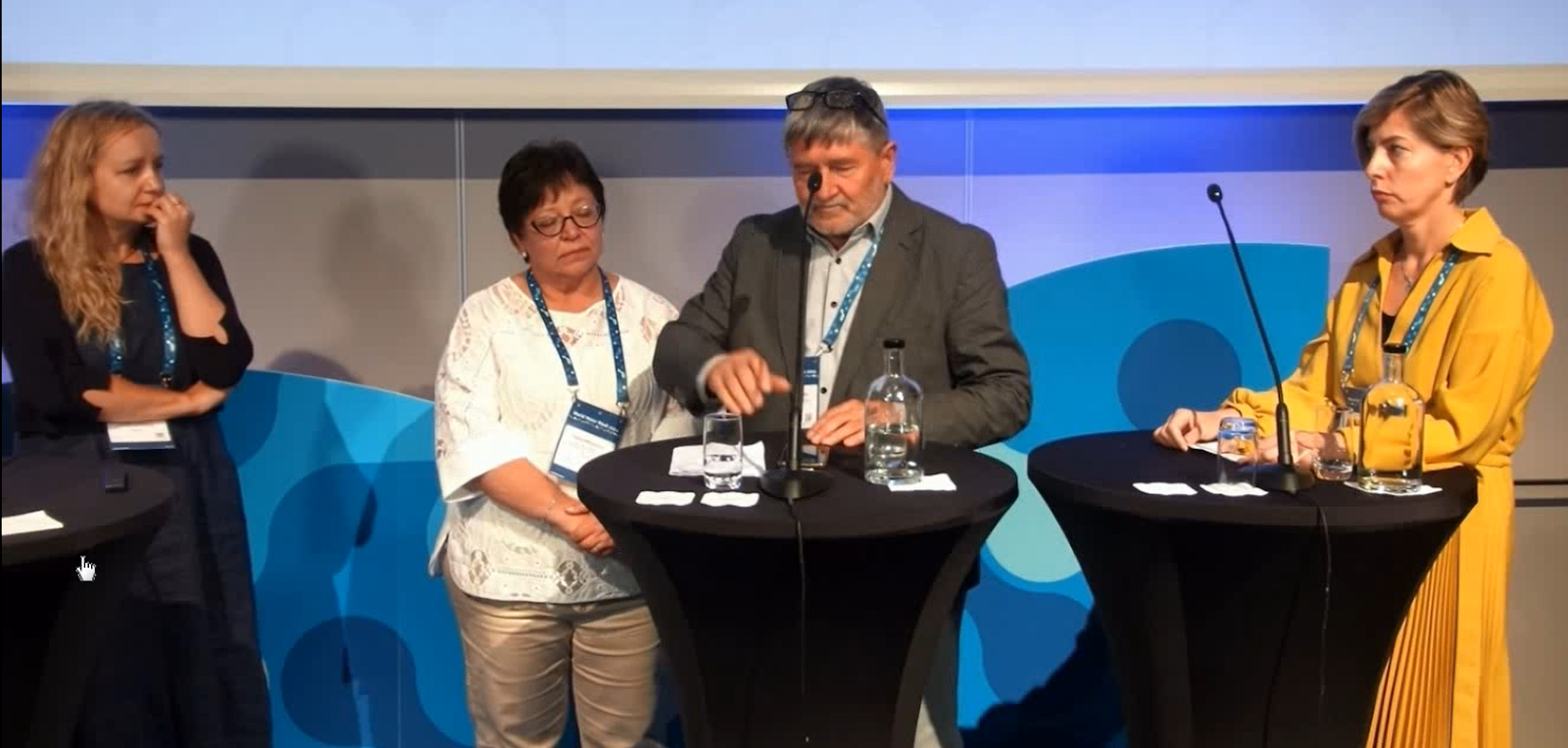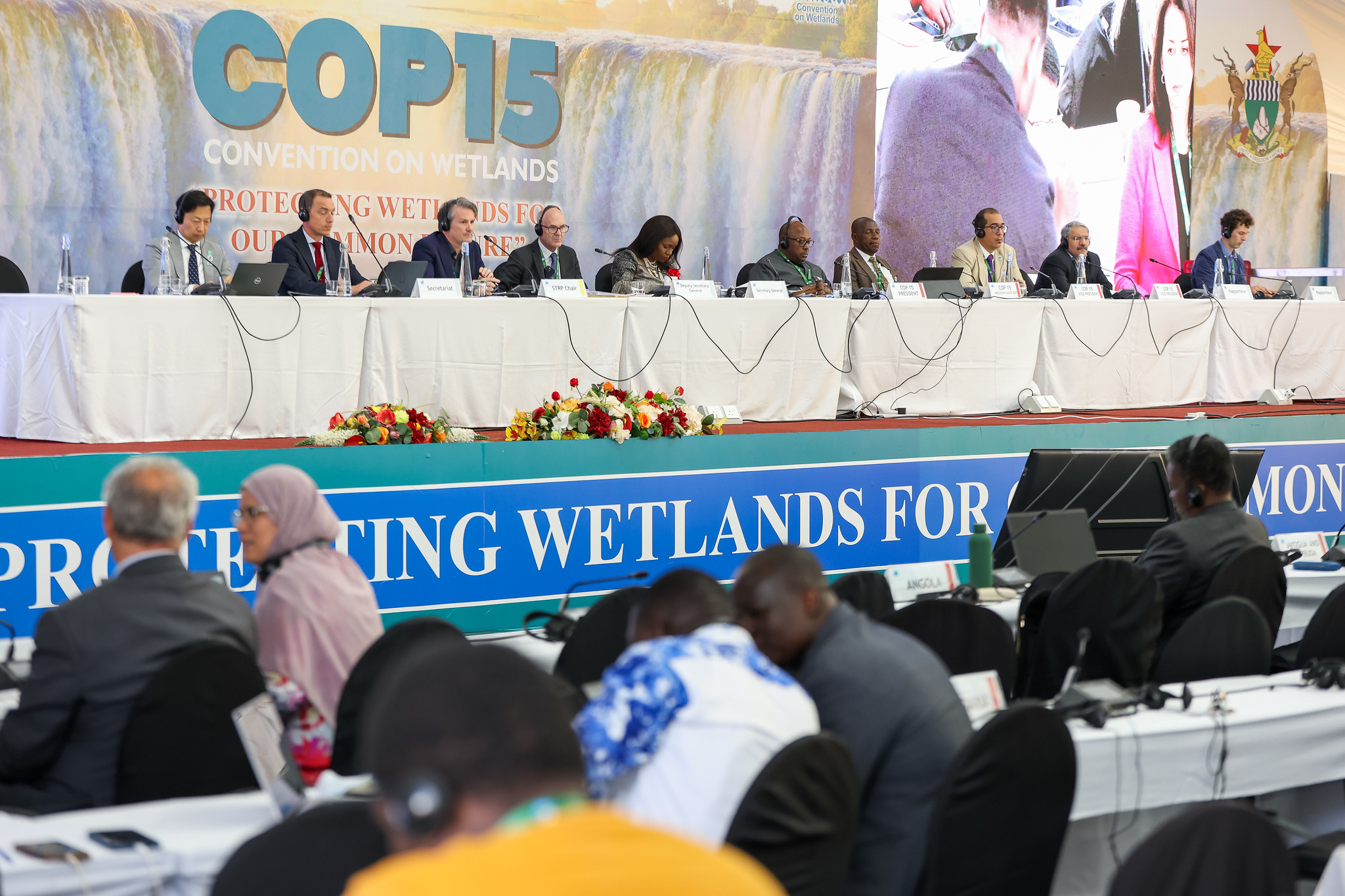by Vera Kuzmina
Translated by Nick Müller
The issues of climate change and its impact on the socio-economic development of countries of the world were among the main issues at the World Economic Forum (WEF) in Davos, Switzerland in January. The war in Ukraine was also discussed, including in terms of its impact on the economy, future of business, and the state of the environment.
Davos’ slogan this year was “Cooperation in a fragmented world,” a phrase which points primarily to the war in Ukraine and the resulting disunity and disruption of traditional economic ties. The question of where globalization is heading as a result of the invasion of Ukraine raised questions at Davos about the potential for global peace.
Roughly 2,700 delegates attended Davos, 70% of which represented Europe and North America. Of G7 leaders, only Olaf Scholz appeared at the WEF, and there were no representatives from Russia.
Guterres sets the tone
United Nations Secretary General António Guterres tried to bring together issues of climate and military risks, as well as evoking principles of sustainable development.
Among the issues requiring immediate attention, the UN Secretary-General listed the global economic crisis, consequences and lessons of the pandemic, and the threat of a climate catastrophe, as well as conflicts. Among these, he highlighted the situation in Ukraine in connection with the war’s “profound global implications”.
According to the Secretary General, the war has affected food and energy prices, supply chains, and nuclear safety. It also shook the foundations of international law and the UN Charter. He noted that humanity is “flirting with climate disaster.” Greenhouse gas emissions are on the rise, and the planet could experience warming of 2.8 degrees Celsius. The consequences of such a scenario would be devastating.
The Secretary General also appealed to business, calling for corporate responsibility for misinformation and the concealment of data. Guterres noted the Exxonmobil scandal that erupted before Davos – the moment when journalists learned that the oil giant knew about the destructive consequences of greenhouse gas emissions back in the 70s, but hid its findings from the public while supporting the spread of false information.
“All of these problems are interlinked. They are piling up like cars in a chain reaction crash. There are no perfect solutions in a storm,” the UN head emphasized. “But, we can work to control the damage and seize opportunities,” he continued.
Without Russian Coil
German Chancellor Olaf Scholz declared that Europe’s largest economy has survived the rejection of Russian gas and was prepared for winter. Russia stopped supplying coal to the EU in retaliation for sanctions after the start of its invasion of Ukraine.
In his speech, Scholz acknowledged that the German economy was geared towards innovative manufacturing rather than energy generation. The loss of one of its main energy suppliers has led to a disruption in the economy. The chancellor is also confident that there are no problems with new gas fields in the world, so the “blue fuel” deficit can be offset without harming developing countries.
Prior to the WEF, there had been criticism that rich countries pay more and divert gas destined for developing countries. Germany also intends to develop hydrogen and renewable energy projects in order to avoid energy lockdowns such as occurred last year.
Ukrainian grain for the world
The Russian military invasion of Ukraine disrupted grain supplies to other countries. Ukraine’s export capacity has been reduced and is at high risk.
“We need to make sure that NATO creates a safe corridor from Odesa and other ports so that grain from Ukraine continues to be delivered to countries that need it. Global food security is at stake. We must support Ukraine, otherwise people around the world will have nothing to eat,” declared José Andrés, director of the international food organization World Central Kitchen, at an event at the Ukrainian House in Davos.
According to World Food Program (WFP) estimates, Ukraine is one of the world’s largest donors to the WFP, a UN agency that provides food assistance to countries in crisis. According to its executive director David Beasley, Ukraine provides 40% of the world’s food aid.
Climate economy
Davos participants actively discussed the United States Inflation Reduction Act (IRA), signed into law in August 2022, part of Biden’s green economy plan. Economists estimate that incentives for green businesses will amount to about $370 billion to support clean energy projects in the US.
Martin Lundstedt, chief executive of Swedish truck manufacturer Volvo, says the US is “creating the conditions for a transition from a fossil fuel-based, brown economic platform to a “green one”, and Europe needs to draw inspiration from that. The head of the European Commission, Ursula von der Leyen, pledged that a law similar to the American one will soon appear in the EU.
Another economic topic discussed was the rejection of Gross Domestic Product (GDP) as the only criterion for evaluating the effectiveness of investments. Special Presidential Envoy for Climate of the President of the United States John Kerry announced the creation of a national statistical program that will consider environmental costs when planning economic projects. Modeled in part on a Chinese system for assessing environmental damage, the program launched in six cities. Both systems aim to adjust the use of GDP as the sole measure of project performance. Kerry hopes that statistically-driven assessments of environmental services will enable better climate and environmental decisions.
WEF organizers also announced the launch of the Giving to Amplify Earth Action (GAEA) program to fund $3 trillion per year of zero-carbon initiatives. More than 45 partners from the philanthropic, public, and private sectors will join GAEA. Initially, the program will support international consulting company McKinsey’s Sustainability division, as well as BMW’s and IKEA’s charitable foundations, the United Nations Foundation, and other organizations and institutions.
Activists at Davos
During the business forum, environmental and climate activists conducted several actions. Renowned climate activist Greta Thunberg traveled to the Forum to express her dissatisfaction with the actions of big business. Thunberg arrived in Davos after being detained during protests against coal mining in Germany. While detained, the activist stated that climate activism was “not a crime”.
Thunberg ridiculed the appointment of oil company ADNOC executive Sultan Al Jaber (UAE) to the role of President of COP 28, to be held in the UAE. “Lobbyists have been influencing these conferences since forever, and this just puts a very clear face to it. It’s completely ridiculous,” the activist said. Also, Greta published her “Cease and Desist” appeal to business and politicians, collecting over 850,000 signatures. The petition calls on energy companies “to immediately stop opening any new oil, gas, or coal extraction sites and stop blocking the clean energy transition we all so urgently need.”
Against the dramatic background of the military conflict between Russia and Ukraine, the long-term agenda in Davos closely touched on the topic of climate. Thus, it can be said that oil, coal, and gas trading was further enabled by Russia’s military invasion, and energy blackmail by the world’s largest economies. Today, business elites seek to overcome contradictions between economic growth and environmental conservation, between profit and sustainable development goals. The main focus of the summit was not on a return to mainstream traditional energy, but on a rapid transition to renewable energy sources and “green” innovations that will help the world become more equitable. In this regard, Greta Thunberg’s participation at Davos and engagement with forum participants demonstrated that the decisions made here are important not only for CEOs, but for humanity as a whole.
Main image credit: HindustanTimes







